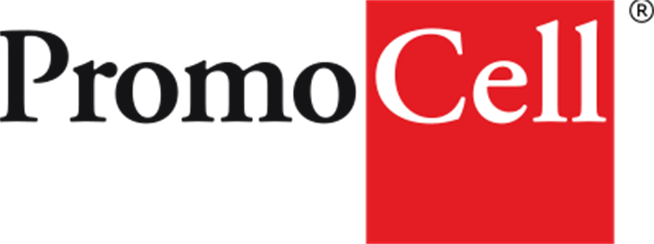Full Schedule
Full Schedule
- Thursday, July 11, 2024
- CONCURRENT TRACK AND FOCUS SESSIONS - 8:15 AM THURSDAY
- 8:15 AM – 9:45 AM CESTEMERGING NEW THERAPIES
Co-Chair: Dimitri Kullmann, MD, PhD – University College London
Co-Chair: Tamar Harel Adar, PhD – Matricelf
Concurrent Speaker: Ganna Bilousova, PhD (she/her/hers) – University of Colorado Anschutz Medical Campus
Presenting Author: Tatsuma Kondo, MD (he/him/his) – Nagoya University
Presenting Author: Jacqueline Bliley – Carnegie Mellon University
Presenting Author: Shulin Li, PhD, PhD – The University of Texas MD Anderson Cancer Center
Presenting Author: Holly K. Voges, PhD – Murdoch Childrens Research Institute
Concurrent Speaker: Ludovic Vallier, PhD – Berlin Institute of Health at Charite
Therapies spanning a range of modalities, including in-situ / direct reprogramming, direct gene editing, and gene-edited cell therapies will be highlighted in this session.Clinical Applications
- 8:15 AM – 9:45 AM CESTADVANCING IN VITRO MODELS
Co-Chair: Gabsang Lee, PhD (he/him/his) – Johns Hopkins School of Medicine
Co-Chair: Ryuji Morizane, MD, PhD (he/him/his) – Massachusetts General Hospital
Concurrent Speaker: David Elliott – MCRI
Presenting Author: Helmuth Gehart, PhD (he/him/his) – ETH Zürich
Presenting Author: Deepali Pal, PhD – University of Bristol
Presenting Author: Esther Fousert – Leiden University Medical Center
Presenting Author: Shalaka Chitale, PhD – CytoTronics Inc.
Concurrent Speaker: Meritxell Huch, PhD (she/her/hers) – Max Planck Institute of Molecular Cell Biology & Genetics (MPI-CBG)
Disease models have been under development for a number of years but recent advances in technology, from readouts to complexity of tissue types included, have increasingly improved capture of normal physiology and disease. Recent advances in this space will be presented.Disease Modeling and Drug Discovery
- 8:15 AM – 9:45 AM CESTIMAGING STEM CELL SYSTEMS ACROSS SCALES
Co-Chair: Miki Ebisuya, PhD (she/her/hers) – Physics of Life TU Dresden
Co-Chair: Ron Weiss, PhD – MIT
Presenting Author: Madeline Lancaster, PhD – MRC Laboratory of Molecular Biology
Presenting Author: Daniel Postrach (he/him/his) – German Cancer Research Center (DKFZ)
Presenting Author: Duncan M. Chadly, BS, BA (he/him/his) – Caltech
Presenting Author: Ramon Pfaendler (he/him/his) – ETH Zürich
Presenting Author: Laura A. Fischer (she/her/hers) – Washington University in St. Louis
Concurrent Speaker: Bernd Bodenmiller, PhD (he/him/his) – University of Zurich and ETH Zurich
This concurrent session will visualize how molecules and stem cells organize to build tissues and form organs, which is essential to capture mechanisms underlying normal physiology and disease. This session will cover examples on imaging approaches to map stem cells and watch development as it unfolds.New Technologies
- 8:15 AM – 9:45 AM CESTINTEGRATED STEM CELL MODELS OF EARLY EMBRYO DEVELOPMENT
Co-Chair: Katsuhiko Hayashi, PhD (he/him/his) – Osaka University
Co-Chair: Shahragim Tajbakhsh, PhD – Pasteur Institute
Concurrent Speaker: Aydan Bulut-Karslioglu, PhD (she/her/hers) – Max Planck Institute for Molecular Genetics
Presenting Author: Bernardo Oldak, MD, MSc, PhD student – Weizmann Institute of Science
Presenting Author: Anchel de Jaime-Soguero, PhD – Heidelberg University
Presenting Author: Karlien Van Nerum – University of Copenhagen
Presenting Author: Raquel Fueyo – Stanford University
Concurrent Speaker: Sophie Petropoulos, PhD – Karolinska Institutet, Sweden and University of Montreal
Embryo models formed from stem cells open a scientifically and ethically conducive path for embryology. Here, speakers will focus on ‘Integrated Embryo Models’ that contain the relevant embryonic and extraembryonic cell types that could support a capacity for further integrated development.Pluripotency and Development
- 8:15 AM – 9:45 AM CESTAGING AND METABOLIC REGULATION OF TISSUE STEM CELLS
Co-Chair: Elisa Laurenti, PhD (she/her/hers) – University of Cambridge
Co-Chair: Sirio Dupont, PhD (he/him/his) – University of Padova
Concurrent Speaker: Kyoko Miura, PhD (she/her/hers) – Kumamoto University
Presenting Author: Silvia Sighinolfi, PhD – IRCCS San Raffaele Scientific Institute
Presenting Author: Jonathan Bayerl, PhD – University of California, San Francisco
Presenting Author: Elisa Gabassi – University of Innsbruck
Presenting Author: Rui Yue, PhD – Tongji University
Concurrent Speaker: Salvador Aznar Benitah, PhD – Institute for Research in Biomedicine (IRB Barcelona)
Aging and metabolism exert profound, intertwined effects on stem cell dynamics in vivo. This session will explore the molecular mechanisms that underpin these broad-ranging impacts and define their cellular consequences.Somatic Stem Cells, Cancer and Regeneration
- 8:15 AM – 9:45 AM CESTSTRATEGIES FOR THE DEVELOPMENT OF ALLOGENIC iPSC-DERIVED CELL THERAPIES
Focus Session Speaker: Audrey Holtzinger, PhD – Evotec
Focus Session Speaker: Matthias Austen, PhD – Evotec
Focus Session Speaker: Andrea Ditadi, PhD – Ospedale San Raffaele
Focus Session Speaker: Nico Lachmann, PhD – Medizinische Hochschule Hannover
Focus Session Speaker: Marius Ader, PhD – Technische University Dresden/CRTD
Organized by Evotec iPSCs can serve as starting material for generating potentially limitless amounts of cells for therapeutic applications, especially when focusing on allogenic, off-the-shelf approaches in regenerative and anti-tumor medicine. This session emphasizes distinct strategies for different categories of therapeutic cells, such as mature cells derived from organoids, cell clusters, and single-cell populations. Predictive and efficient functional assays both for cellular maturation and immune-evasion are essential to determine the chances of product success.Focus Session
- 8:15 AM – 9:45 AM CESTBEST PRACTICES FOR THE DEVELOPMENT OF PSC-DERIVED CELLULAR THERAPIES
Chair: Kapil Bharti, PhD – National Eye Institute; National Center for Advancing Translational Sciences, National Institutes of Health
Concurrent Speaker: Tenneille Ludwig, PhD – WiCell Research Institute
Concurrent Speaker: Glyn Stacey, PhD – National Institute for Biological Standards and Control
Concurrent Speaker: Ricardo Baptista, PhD (he/him/his) – SmartCella
Concurrent Speaker: Jacqueline Barry, PhD – Cell and Gene Therapy Catapult
Concurrent Speaker: Derek Hei, PhD – Kenai Therapeutics
Concurrent Speaker: Jeanne Loring, PhD – Scripps Research Institute
Concurrent Speaker: Roger Barker, MRCP PhD – University of Cambridge
The development of a set of best practices is part of the ISSCR’s Standards Initiative and leverages the Society’s strength in rigorous basic stem cell research. The goal of the project is to provide a jurisdictionally neutral “roadmap” from starting materials through clinical trials for scientists, regulators, and others involved in the development of PSC-derived therapies. This program will present the first draft of the Best Practices for public review and feedback.Ethics, Policy and Standards
- PLENARY SESSION - 10:00 AM THURSDAY
- 10:00 AM – 11:45 AM CESTPLENARY III: EXPLORING THE BASIC PRINCIPLES OF DEVELOPMENT USING STEM CELLS
Co-Chair: Hans R. Schöler, PhD, Professor – Max Planck Institute for Molecular Biomedicine
Plenary Speaker: Jennifer Nichols, PhD – University of Edinburgh
Plenary Speaker: Maria Elena Torres-Padilla, PhD – Helmholtz Zentrum München
Plenary Speaker: Mansi Srivastava, PhD – Harvard University
Plenary Speaker: Alfonso Martinez Arias, PhD – Universitat Pompeu Fabra Barcelona
The principles of embryogenesis provide the foundation for expanding our knowledge of health and disease. Invited researchers that model embryogenesis using stem cells to explore such basic principles will present in this session.Pluripotency and Development
- INNOVATION SHOWCASES - 12:00 PM THURSDAY
- 12:00 PM – 12:30 PM CESTCEPT COCKTAIL - A NEW CHEMICAL PLATFORM FOR STRESS-FREE AND SAFE CULTURE OF iPSCS
Showcase Presenter: Ilyas Singeç – FUJIFILM Cellular Dynamics, Inc.
Human induced pluripotent stem cells (iPSCs) offer unprecedented opportunities for biomedical research, drug discovery, and regenerative medicine. However, to fully capitalize on the potential of iPSCs, it is necessary to culture and differentiate them under optimal conditions. Poor cell survival, cell stress, and accumulation of genetic abnormalities have been long-standing challenges. This presentation will introduce and discuss the discovery and application of CEPT, a four-part small molecule cocktail for cytoprotective and stress-free cell culture. CEPT represents a novel end-to-end solution for iPSCs and other sensitive cell types and can be utilized for routine cell passaging, cryopreservation/thawing, single-cell cloning, gene editing, and organoid formation. At this Innovation Showcase, Dr. Ilyas Singeç, who led the discovery of the CEPT cocktail at the National Institutes of Health (NIH) and is currently the Chief Scientific Officer for FUJIFILM Cellular Dynamics Inc., will discuss the scientific rationale and practical advantages of culturing iPSCs with this new and safer approach.Innovation Showcase
- 12:00 PM – 1:00 PM CESTUNLOCKING THE POWER OF DETERMINISTIC CELL PROGRAMMING IN BIOMEDICAL RESEARCH AND DRUG DISCOVERY
Showcase Presenter: Roger Pedersen – Stanford University
Showcase Presenter: Matthias Pawlowski – University of Münster
Showcase Presenter: Sejla Salic-Hainzl – bit.bio Vienna
The session is split into 3 parts. 1) Transcription factor-mediated cell programming. Roger Pedersen (Stanford University) will discuss the paradigm shift achieved using transcription factor-mediated cell programming to alter pluripotent stem cell fate. He will detail how transcription factor-based programming impacts reproducibility and scalability and dramatically improves stem cell utility in research and future therapeutic applications. 2) Unravelling Alzheimer’s disease: Insights into pathogenesis, promising therapies, and the potential of stem cells. Matthias Pawlowski (University of Münster) will explore genetic, protein misfolding, and neuroinflammation roles in the pathogenesis of Alzheimer’s disease, alongside promising treatment strategies including small molecule inhibitors and immunotherapies as well as research on pluripotent stem cells as a transformative approach for advanced disease modelling and drug development. 3) hiPSC-derived cell models for functional genomics and neural network formation studies. Sejla Salic-Hainzl (bit.bio) will present on the use of human iPSC-derived cells in functional genomics and drug candidate characterisation. She will discuss the integration of CRISPR-Cas9 technologies with these cells, exploring their potential for disease modelling, target identification and validation. Additionally, she will showcase data on co-cultured neural cells forming functional networks, highlighting their importance in understanding disease mechanisms and developing targeted treatments.Innovation Showcase
- 12:00 PM – 1:00 PM CESTSTEM CELLS: FROM RESEARCH TO MANUFACTURING AND CLINICAL APPLICATIONS
Showcase Presenter: Lucienne Vonk – Xintela
Showcase Presenter: Nicolas Andre – Corning Life Sciences
Corning has been committed to stem cell research for decades, developing the necessary tools that allow you to advance groundbreaking research in the field. Whether your stem cell research requires advanced cell culture surfaces, state-of-the-art vessels, nutrient-rich media, or innovative closed system solutions, look to Corning products to ensure cell viability and reproducibility, and streamline regulatory compliance in your lab. From isolation to analysis, Corning is committed to supporting cutting-edge innovation across the spectrum of stem cell research. Nicolas Andre, Scientific Manager at Corning Life Sciences, will show case examples of how Corning technologies enabled stem cells research and development of new models. Lucienne Vonk, Xintela CSO, will present Xintela’s journey going from an idea in the lab to preclinical studies, GMP manufacturing and clinical studies. Xintela develops medical products in stem cell therapy based on the Company's cell surface marker integrin α10β1. The stem cell marker is used to select and quality-assure the patent-protected stem cell product XSTEM®, which is in clinical development for treatment of knee osteoarthritis and difficult-to-heal leg ulcers. The company produces XSTEM for the clinical studies in its GMP-approved manufacturing facility.Innovation Showcase
- 12:00 PM – 1:00 PM CESTADVANCED FUNCTIONAL CHARACTERIZATION OF iPSC-DERIVED IN VITRO MODELS IN DISEASE MODELLING AND ARTIFICIAL INTELLIGENCE
Showcase Presenter: Feng Guo – Indiana University Bloomington
Showcase Presenter: Marian Hruska-Plochan – University of Zurich
Two-dimensional (2D) and three-dimensional (3D) cell cultures, designed to mimic in vivo conditions to varying extents, particularly when derived from human induced pluripotent stem cells (iPSCs), serve as a valuable substitute for conventional animal models. These cellular models not only provide a crucial avenue in disease modeling but also offer significant opportunities in artificial intelligence. Our guest speakers will explore innovative applications and methodologies of iPSC-derived neural cultures for modeling neurodegeneration and showcasing the computational capabilities of 3D biological neural networks. Following the seminar, we will engage in an interactive Q&A session to shed light on diverse perspectives regarding the future of iPSC in vitro models.Innovation Showcase
- 12:00 PM – 1:00 PM CESTINNOVATION ACROSS PLURIPOTENT STEM CELL RESEARCH: FROM REPROGRAMMING TO MANUFACTURING AND ORGANOID IMAGING
Showcase Presenter: Sebastian Knöbel – Miltenyi Biotec
Showcase Presenter: Stephan Werk – Miltenyi Biotec
In the first part of the talk, Sebastian Knöbel, PhD, Senior R&D Manager at Miltenyi Biotec, will guide us through a comprehensive array of solutions that cover the whole journey of pluripotent stem cell (PSC) research from bench to bedside. These include product developments for mRNA-based reprogramming, pluripotent stem cell expansion, differentiation, and characterization. With a focus on PSC workflows, he will showcase how these developments can pave the way for manufacturing in the closed CliniMACS Prodigy® Adherent Cell Culture. Afterwards, we will have the pleasure of hearing from Stephan Werk, Instrument Sales Specialist Imaging Business, who will introduce light sheet imaging through the lens of the UltraMicroscope Blaze™. Delving further into the topic, he will unveil light sheet imaging capabilities in visualizing organoids, organs, and organisms. In addition, he will discuss the in-depth analysis of organoids regarding morphology, cellular composition and architecture, made possible by the UltraMicroscope Blaze. He'll also discuss leveraging in-depth phenotyping to refine cell culture conditions and quality control measures.Innovation Showcase
- 12:00 PM – 1:00 PM CESTUSING HUMAN PLURIPOTENT STEM CELL-DERIVED NEURAL ORGANOIDS FOR DISEASE MODELING
Showcase Presenter: Jinyuan Wang, PhD – STEMCELL Technologies Inc.
The human brain is a complex system, and neither traditional 2D tissue culture techniques nor animal models can fully recapitulate the complexity necessary for understanding neural pathologies. In contrast, cutting-edge culture models such as human neural organoids contain diverse tissue-specific cell types—progenitors, neurons, and glial cells—thereby offering enhanced physiological relevance. Here, we will introduce the STEMdiff™ neural organoid portfolio, which can generate unguided or guided neural organoids from human pluripotent stem cells (hPSCs) with high efficiency. We will showcase the generation of unguided cerebral organoids for modeling microcephaly and epilepsy, and how to generate guided spinal cord organoids for modeling Amyotrophic Lateral Sclerosis. This presentation will feature our latest state-of-the-art product: Human iPSC-Derived Midbrain Organoids, which are shipped fully differentiated and ready for immediate use. We will showcase the quality of these organoids and their use in a variety of applications, such as studying Parkinson's disease and neuroinflammation.Innovation Showcase
- 12:00 PM – 1:00 PM CESTSTEM CELLS AND 3D: EXPANSION AND UPSCALING
Showcase Presenter: Michael Laurence Akenhead, PhD – Thermo Fisher Scientific
Showcase Presenter: Juda-El Sam – Scinus Cell Expansion Netherlands BV
Large-Scale Expansion of 3D Pluripotent Stem Cell Spheroids in a New Xeno-Free Suspension Culture Medium •Michael Akenhead, Thermo Fisher Scientific Upscaling and Neural Differentiation of Human Induced Pluripotent Stem Cell Spheroids in 3D •Juda-El Sam, Scinus Cell Expansion Netherlands BV, Bilthoven, the NetherlandInnovation Showcase
- 12:30 PM – 1:00 PM CESTSTRATEGIES AND SOLUTIONS FOR ACCELERATING DRUG DISCOVERY AND DEVELOPMENT IN ATMPS AND BIOPHARMA
Showcase Presenter: Gonçalo Regalo – FUJIFILM PORTUGAL S.A.
The concept and development of advanced therapies and innovative biopharmaceutical products face many challenges. In the identification and assessment of novel molecules and therapeutic strategies lack of reproducibility of pre-clinical test methods, costs and time are factors that developers have to factor in to maximize the success of a pipeline. Concurrently, in the optimization of the manufacturing processes for early clinical development, the understanding of the impact of critical raw materials choices in the attributes of the drug product, while keeping scalability and quality in sight, is key to assure manufacturability and a seamless transition to late stage clinical and commercial development phases. Fujifilm offers developers a range of services and products which assist developers in tackling these challenges early on. Together with the expanding manufacturing capacity and expertise of our CDMOs, Fujifilm aims at being a complete solution provider and partner to accelerate the way to market of innovative therapies.Innovation Showcase
- PLENARY SESSION - 1:30 PM THURSDAY
- 1:30 PM – 3:00 PM CESTPLENARY IV: TISSUE ARCHITECTURE AND STEM CELL FUNCTION IN HEALTH AND DISEASE
Co-Chair: Kim B. Jensen, PhD – Novo Nordisk Foundation Center for Stem Cell Biology – reNEW, University of Copenhagen
Co-Chair: Lucy Erin O'Brien, PhD (she/her/hers) – Stanford University School of Medicine
Plenary Speaker: Cristina Lo Celso, PhD (she/her/hers) – Imperial College London
Plenary Speaker: Heinrich Jasper, PhD (he/him/his) – Genentech
Plenary Speaker: Fiona Doetsch, PhD – University of Basel
Plenary Speaker: Elaine Fuchs, PhD – HHMI, The Rockefeller University
Stem cells are linchpins of healthy organ renewal over an organism's lifetime, and stem cell dysfunction is a driver of regeneration, ageing and disease. This session spotlights emerging behaviors and strategies used by stem cells across organs and organisms.Somatic Stem Cells, Cancer and Regeneration
- 3:00 PM – 6:00 PM CESTEXHIBIT HALL PUB CRAWLNew this year, the ISSCR will host an Exhibit Booth Pub Crawl from 3:00pm - 6:00pm on Thursday, 11 July. Enjoy a complimentary beverage or snack from participating exhibitors as you connect with exhibitors, colleagues, and friends! Participating Exhibitors:
- Axion Biosystems at Booth #1202
- MCRI iPSC Gene Editing and Derivation Facility at Booth #1210
- PBS Biotech at Booth #503
- Society for Laboratory Automation and Screening (SLAS) at Booth #1206
- POSTER SESSIONS & EXHIBIT HALL EVENTS - 3:45 PM THURSDAY
- 3:40 PM – 5:45 PM CESTPOSTER SESSIONS and EXHIBIT HALL EVENTSJoin us for these events in the Poster and Exhibit Hall:
3:45 PM – 4:45 PM POSTER SESSION II: ODD
4:45 PM – 5:45 PM POSTER SESSION II: EVENSchedules to be announced: EXHIBIT HALL THEATER TALKSBite-sized, 15-minute sessions on specialized topics. Pop in and out of the Exhibit Hall Theater to catch these brief presentations from scientific and industry leaders. MEET-UP HUBS: Connect with your colleagues and engage in conversation and networking at these common interest discussion forums. - MEET-UP HUBS - THURSDAY 3:45 PM - 5:45 PM
- 3:45 PM – 5:45 PM CESTMEET-UP HUB 1: GET-TOGETHER GERMAN STEM CELL NETWORKOrganized by the German Stem Cell Network (GSCN).
The meet-up of the German Stem Cell Network (GSCN) is open to all those in the German scientific stem cell community as well as attendees of the 2024 Annual Meeting. We will discuss the dialog platform for stem cell research and national strategies in this field in Germany as well as the ongoing activities of the GSCN. - 3:45 PM – 5:45 PM CESTMEET-UP HUB 2: EARLY CAREER PIs/GROUP LEADERS NETWORKINGOrganized by the ISSCR Early Career Scientists Task Force
If you are an early career Principal Investigator or Group Leader (0-8 years after your final postdoc), we invite you to network with other early career group leader attendees. Join the Early Career Scientist Task Force members at this meet up and bring your challenges to discuss with your peers, or just come to socialize and meet other early career group leaders. Don’t miss this unique opportunity to network with your peers from around the world. - 3:45 PM – 5:45 PM CESTMEET-UP HUB 3: STEM CELLS FOR HIRSCHSPRUNG'S DISEASEOrganized by Peter Andrews, University of Sheffield, UK
Hirschsprung disease (HSCR), a potentially lethal condition affecting 1 in 5,000 newborn children, is caused by the absence of enteric neurons in the distal bowel. This leads to a loss of propulsive gut motility, ultimately resulting in potentially lethal intestinal obstruction. Current treatment is complex, involves surgical removal of the affected region of the bowel, and often leaves patients with lifelong problems. Several groups around the world, that will be present at this ISSCR meeting, are well advanced in developing approaches using pluripotent stem cells or endogenous stem cells to provide enteric neural progenitors for transplant into the affected gut to relieve the condition. This Meet-up will bring together different teams and initiate an ongoing forum for addressing common issues in taking this approach forward to the clinic, e.g., comparing different cell lines, confirming safety, immunogenicity, appropriate clinical parameters and relevant endpoints for first-in-child clinical trials. - 3:45 PM – 5:45 PM CESTMEET-UP HUB 1: MEET THE EDITORS OF STEM CELL REPORTSOrganized by Stem Cell Reports
Meet the editors of Stem Cell Reports to discuss a potential submission, your paper in review or new trends in scientific publishing. Bring your questions about Stem Cell Reports and publishing in your society’s journal. - 3:45 PM – 5:45 PM CESTMEET-UP HUB 2: POLICY, ETHICS, AND REGULATORY ISSUESOrganized by the ISSCR Policy Staff
Are you curious about how lawmakers and regulators create the legal frameworks that govern your research? Would you like to know how you can help shape those policies? Join ISSCR’s policy team for an open discussion about the legislation, regulation, and ethical issues around the globe impacting stem cell scientists and their work. - 3:45 PM – 5:45 PM CESTMEET-UP HUB 3: LGBTQIA+ STEM CELL NETWORKINGOrganized by Ya-Wan Chen, Icahn School of Medicine at Mount Sinai, USA
Join us for an exciting opportunity to connect with like-minded individuals in the stem cell field who identify as LGBTQIA+ or support the LGBTQIA+ community! This meet-up provides a safe and inclusive space to network, discuss current academic and industry trends, and support each other’s professional growth. Don’t miss out on this chance to build community and advance in your career! - EXHIBIT HALL THEATER - THURSDAY
- 3:40 PM – 3:55 PM CESTMOVING iPSC BASED CGT INTO A GMP SETTING
Theater Speaker: Lise Munsie, PhD – CCRM
CCRM is a not-for-profit regenerative medicine innovation incubator spearheading technology commercialization and clinical translation with a strong focus on induced pluripotent stem cells (iPSC)-based therapies. iPSC-based therapies offer advantages in their potential to address clinical applicability and scalable manufacturing to meet patient demand. As the number of iPSC-based therapies in clinical development is increasing, the industry is seeing significant advancement following decades of the industry’s iPSC development efforts. Despite these noteworthy strides, there are still many existing dilemmas to address for sustained progress and commercial viability. CCRM has spent the last 10 years tackling both manufacturing and commercialization challenges in iPSC to produce GMP platform programs to broadly enable iPSC therapy companies. This talk will describe CCRMs platform program and touch on crucial elements impacting efficient and effective clinical translation of these cell therapies. The talk will explore key areas such as material access and readiness, operational intricacies, technological innovations, and standardization for iPSC reprogramming, cell banking, scale-up, gene editing and differentiation all through a manufacturing lens.Exhibit Hall Theater
- 4:00 PM – 4:15 PM CESTUNVEILING VERLO: THE FUTURE OF IMAGE-GUIDED CELL SORTING
Theater Speaker: Rea Dabelic – NanoCellect Biomedical, Inc.
This presentation introduces the VERLO™ Image-Guided Cell Sorter, a novel product from NanoCellect. VERLO integrates advanced image-guidance technology with cell sorting, enhancing precision and efficiency. The system captures high-resolution images of individual cells, providing spatial information such as cell morphology and marker localization. Enhanced resolution imaging capabilities allow for the visualization and analysis of subcellular structures and spatial variations in brightfield, darkfield, and fluorescent images. VERLO’s gating strategy incorporates imaging features to define cell phenotypes, increasing the precision of cell sorting. The system combines low-pressure microfluidics with single-cell image acquisition to measure a multitude of features from cell images, generating comprehensive multivariate datasets. Applications of VERLO include label-free cell structure analysis, investigation of cell-cell interactions, study of nuclear translocation, and cell organelle staining. This presentation will delve into the technological details and potential applications of the VERLO, allowing researchers to study cells in their physiologically relevant state in downstream processes.Exhibit Hall Theater
- 4:20 PM – 4:35 PM CESTSCALABLE HUMAN IPSC-TO-3D BIOPRINTING PIPELINE: SUCCESSFUL LARGE-SCALE PRODUCTION USING AUTOMATED BIOREACTOR SYSTEMS
Theater Speaker: Maya Fuerstenau-Sharp – Sartorius Stedim Biotech GmbH
Human induced pluripotent stem cells (hiPSCs) are pivotal in advancing tissue engineering, particularly for transplantation therapy and disease modeling. A sustainable approach to organ-scale tissue engineering demands the production of billions of human cells for bioprinting, especially wholly cellular bioinks. However, scalability challenges in conventional 2D cell culture methods, such as cost, space, and handling constraints, present significant hurdles. To address these issues, we optimized and developed a robust, scalable pipeline to produce hiPSC aggregates (hAs) at 1L scale using an automated stirred-tank bioreactor system for bioprinting applications. These pluripotent aggregates were subsequently differentiated into derivatives of the three germ layers, including cardiac, vascular, cortical, and intestinal organoids. The aggregates were successfully compacted into wholly cellular bioinks for rheological analysis and 3D bioprinting. The 3D bioprinted tissues exhibited high post-printing viability and the potential for vascular and neuronal differentiation, highlighting a promising pathway for billion cell-scale organ engineering. Our next objective is to further expand this process by implementing a 10L scale bioreactor system to expand and differentiate the cells to enhance cell yield and process efficiency.Exhibit Hall Theater
- 4:40 PM – 4:55 PM CESTCRACKING THE CODE: ACCELERATED DIRECTED DIFFERENTIATION OF HIGH PURITY NEURONS AND NEURAL CREST DERIVATIVES FROM ANY HIPSC LINE
Theater Speaker: Patrick Walsh – Anatomic Incorporated
Anatomic Incorporated's rapid, directed differentiation platform facilitates the manufacture of high-purity sensory neurons, motor neurons, melanocytes, Schwann cell precursors, and spinal dorsal horn neurons from any human induced pluripotent stem cell (hiPSC) line within just 7 to 9 days. These breakthroughs in manufacturing efficiency are due to precision-engineered protocols that use exclusively growth factors and small molecules, without the need for transcription factor overexpression. This allows for the first time efficient, scaled-out manufacturing of any of our cell types from any pluripotent stem cell line, enabling donor-specific disease modeling. This technology is available in the form of differentiation kits, off-the-shelf human cells, or tailored differentiation services. Our sensory neurons express druggable pain targets and functionally respond to key reference compounds, making them invaluable for pain pathway studies. Our motor neurons, invaluable for the study of ALS, demonstrate robust functionality in electrophysiological assays. Our melanocytes exhibit characteristic pigmentation and gene expression profiles, ideal for investigating skin disorders and cosmetic applications. Our Schwann cell precursors provide the only scalable model for peripheral myelination in conjunction with our neuronal cell types. And finally, our dorsal horn population provide the first-ever humanized in vitro model for central pain mechanisms, including central sensitization.Exhibit Hall Theater
- 5:00 PM – 5:15 PM CESTSTREAMLINING CELL THERAPY MANUFACTURING WITH ACROBIOSYSTEMS AS YOUR GMP RAW MATERIAL SUPPLIER
Theater Speaker: Anil Kumar
Qualifying GMP or cGMP (current Good Manufacturing Practice) raw materials is a responsibility that falls upon cell therapy manufacturers. Finding a good supplier that can support the transition to clinical manufacturing is crucial in regulated manufacturing. As an expert in protein manufacturing, our stringent quality control and regulatory support enables us to offer industry leading GMP proteins for ancillary use. From our perspective, we see numerous considerations in selecting a GMP raw material supplier begins long before entering clinical trials. Early adoption of GMP raw materials can significantly streamline regulatory approval. By establishing robust quality control systems and documentation practices early on, researchers can avoid costly and time-consuming revalidation studies when formal GMP compliance becomes necessary. Additionally, utilizing premium, pre-GMP compliant materials can minimize the burden during transition. These materials often come with established quality control data, simplifying integration into GMP workflows. Our approach is to provide raw materials and solutions that help expedite the regulatory process and pave the way for smoother clinical trials for cell and gene therapies from discovery to the clinic.Exhibit Hall Theater
- 5:20 PM – 5:35 PM CESTSOLUTIONS FOR SINGLE CELL AND ORGANOID SORTING AND ISOLATION
Theater Speaker: Fabiana Izaguirre
Cellenion offers solutions and technologies for controlled cell dispensing with applications in the fields of single cell and single organoids isolation. Our systems allow high throughput, image-based automated dispensing onto any substrates of choice. Together with a range of dedicated consumables, the solutions enable miniaturization of sample preparation protocols on the same instrument before downstream analyses. With no dead volumes and outstanding recovery rates, Cellenion’s platforms offer unique capacities for applications including stem cell research, single-cell omics, rare cells, cell line development, microbiology, drug screening and 3D cell model development. Information about Cellenion is available at www.cellenion.com.Exhibit Hall Theater
- INNOVATION SHOWCASES - 6:00 PM THURSDAY
- 6:00 PM – 6:30 PM CESTREVOLUTIONIZING BRAIN ORGANOID FUNCTIONAL SCREENING: UNVEILING THE POWER OF 3D MICROCHIP TECHNOLOGY FOR ENHANCED LIFE SCIENCES INSIGHTS
Showcase Presenter: Sercan Deniz – 3Brain AG
Human-induced Pluripotent Stem Cell (hiPSC)-derived brain organoids offer invaluable insights into human brain development and disease mechanisms. However, existing technologies struggle to fully capture their intricate 3D functionality. Accura-3D represents a groundbreaking microchip-based plate featuring thousands of ultrathin penetrating electrodes designed to record the inner layers of organoids. This innovation enables a non-destructive, label-free electrical recording method, akin to a "functional microscope": simply retrieve your sample from the incubator, acquire data while visualizing activity in real-time and return it. Fast and easy, it's perfect for lengthy maturation protocols, kinetic studies, or examining organoid dynamics at high resolution. Furthermore, the design of Accura-3D facilitates the creation of microfluidic channels beneath the sample, enhancing oxygenation and compound delivery. Powered by our advanced CorePlate™ technology, Accura-3D allows simultaneous recording from 4096 electrodes, enabling the study of network activity at single-cell resolution. This yields data at exceptional spatiotemporal resolution, markedly improving data quality and reducing experimental variability. Consequently, researchers can conduct in-depth analyses of their samples, extract functional connectivity maps, study local field potentials, and calculate over 100 different activity metrics. At 3Brain, we are dedicated to providing researchers with the most advanced tools for advancing brain organoid research.Innovation Showcase
- 6:00 PM – 6:30 PM CESTBiolaminin® TECHNOLOGY: SUPPORTING STANDARDIZATION FOR TRANSLATIONAL SUCCESS
Showcase Presenter: Evan L. Graham – BioLamina
Showcase Presenter: Terri Gaskell – Rinri Therapeutics Ltd.
Showcase Presenter: Brian Hawkins – Pluristyx, Inc.
Showcase Presenter: Ilse Eidhof – Lund University and Karolinska Institutet, Stockholm
BioLamina can support scientists throughout their cell therapy development process– from concept to commercialized therapy. Our invited speakers will share their stories of translation success. It will be introduced and moderated by Dr. Graham, from BioLamina. Dr. Hawkins will will focus on the development and manufacture of genetically stable, clinical-grade iPSC lines from regulatory-appropriate donor starting material. Dr. Gaskell will share how Rinri Therapeutics has undertaken the journey from academic process to GMP translation. She will outline the fundamentals to building a control strategy to underpin translational success. Finally, Dr. Eidhof will talk about how Defined culture conditions robustly maintain human stem cell pluripotency via tightly controlled Ca2+ signaling.Innovation Showcase
- 6:00 PM – 6:30 PM CESTENABLING iPSC INNOVATION: EXPLORE EBiSC'S CELLS, SCIENCE, AND DATA
Showcase Presenter: Rachel Steeg – Fraunhofer UK Research Ltd
Showcase Presenter: Julia Neubauer – Fraunhofer-IBMT
Showcase Presenter: Jeanette Wihan – Fraunhofer-IBMT
Showcase Presenter: Ralf Kettenhofen – Fraunhofer-IBMT
Unlock the vast potential of human induced pluripotent stem cell (iPSC) research with the European Bank for iPSCs (EBiSC). Whether you're an experienced researcher or embarking on your first project, EBiSC offers a centralised, not-for-profit repository designed to democratise access to high quality iPSC lines. With over 950 iPSC lines covering 40+ diseases, healthy controls, isogenic variants and genetically modified 'tool' iPSC lines (e.g. gene reporters and inducible transgenes), EBiSC provides a comprehensive catalogue to support diverse research needs. Additionally, EBiSC provides pre-differentiated neurons to simplify use of iPSC-neurons across diverse applications. EBiSC prioritises transparency and collaboration, offering an openly accessible cell line catalogue with detailed datasets on donor demographics, reprogramming methods, and cell line performance. Managed access to genetic and clinical data ensures GDPR compliance whilst still fostering innovation and collaboration. For those seeking to support open science, EBiSC offers the opportunity for deposition of iPSC lines, allowing researchers to contribute to future R&D while retaining legal rights for use. Join leading EBiSC scientists as they share insights, scientific developments, and an infrastructure to enable iPSC research at industry standards.Innovation Showcase
- 6:00 PM – 6:30 PM CESTSTEM CELLS FOR SPECIES DE-EXTINCTION AND CONSERVATION
Showcase Presenter: Evan Appleton – Colossal Biosciences
Colossal is a breakthrough bioscience and genetic engineering company that builds radical new technologies to advance the field of genomics. Colossal creates disruptive technologies for extinct species restoration, critically endangered species protection and the repopulation of critical ecosystems that support the continuation of life on Earth. The company is the first to apply CRISPR technology for the purposes of species de-extinction, beginning with the woolly mammoth, Tasmanian tiger, and dodo. Colossal is accepting humanity’s duty to restore Earth to a healthier state, while also solving for the future economies and biological necessities of the human condition through cutting-edge science and technologies. In this presentation we will discuss Colossal Bioscience’s recent work reprogramming iPSCs of multiple species, including the Asian Elephant. The reprogramming of these species required novel reprogramming protocols and tools that may be of interest to the broader stem cell community attending ISSCR.Innovation Showcase
- 6:00 PM – 6:30 PM CESTSYNTHETIC PEPTIDE-BASED GROWTH FACTOR ALTERNATIVE AND THEIR APPLICATION
Showcase Presenter: Robert Brownlee – PeptiGrowth Inc.
Conventional growth factors and cytokines used in the manufacturing of regenerative medicine and cell therapy products are facing various challenges such as lot-to-lot quality variations, potential contamination with biological impurities, low stability, and high manufacturing cost. PeptiGrowth Inc. has been working on the development of a series of synthetic peptides that have better qualities, activities and functions than conventional growth factors and cytokines, and that can address and solve all these challenges. These peptides are totally chemically synthesized and animal component-free. PeptiGrowth was established in April 2020 aiming to thoroughly solve these problems and to support the development of industry growth. The alternative peptide for HGF, BDNF, Noggin, VEGF, Wnt3a, EGF, TPO have been already launched in the market and some of their application examples to cell culture models are planned to be introduced in this presentation.Innovation Showcase
- 6:00 PM – 6:30 PM CESTEMPOWERING CANCER STUDIES: REVOLUTIONIZING CANCER RESEARCH WITH A UNIVERSAL APPROACH TO ISOLATING STEM CELLS FROM TUMOR BIOPSIES
Showcase Presenter: Alexander Trampe – PromoCell GmbH
Tumors comprise various cell types, with only a small portion being cancer stem cells (CSCs) driving malignancy. Identifying CSCs is challenging due to the lack of specific markers and suitable culture methods. Traditional systems favor non-tumorigenic cells, leading to CSC loss. Mouse models aid less malignant tumor cultures, but they're costly and induce changes. Direct isolation of patient-specific tumor cells in defined culture is preferred. PromoCell’s new culture system, the Primary Cancer Culture System, offers universal CSC isolation from patient samples or xenografts. It selectively supports malignant cell traits, preserving original tumor diversity. Unlike traditional media, it depletes benign cells, ensuring CSC enrichment. This system is universally applicable to various CSC types and tumor stages without reliance on uncertain markers. It avoids cytotoxic agents in animal-free environments and is cost-effective. It can enrich CSCs in established cell lines or deplete non-cancerous cells from primary cultures, aiding biomarker identification. Overall, the Primary Cancer Culture System offers a reliable and versatile method for CSC isolation and culture.Innovation Showcase
- 6:00 PM – 6:30 PM CESTADVANCING CELL THERAPIES BY HARNESSING THE POWER OF STEM CELL BIOLOGY & BIOPHYSICS USING THE C-Stem™ TECHNOLOGY PLATFORM
Showcase Presenter: Maxime Feyeux – TreeFrog Therapeutics
Showcase Presenter: Joffrey Mianne – TreeFrog Therapeutics
Showcase Presenter: Clément Rieu – TreeFrog Therapeutics
TreeFrog Therapeutics is an R&D biotech advancing a pipeline of cell therapies based on a proprietary technology platform, C-Stem™ that overcomes several of the major challenges in cell therapy development - producing safe, high-quality, cell therapies at scale. C-Stem™ is the world’s first GMP-compliant cell encapsulation device capable of generating over 1,000 capsules per second. It enables the seeding of up to 10-liter bioreactors and delivers 15 billion cells in a single batch run. This presentation is the opportunity to learn how TreeFrog crossed the frontiers of biophysics and stem cell biology to invent the GMP-compliant C-Stem™ technology platform and to understand its potential through the presentation of the pre-clinical results achieved to date in their lead program in Parkinson’s Disease. The program is on track for a first-in-human trial in 2026 and is already ready for commercial scale.Innovation Showcase

.png)


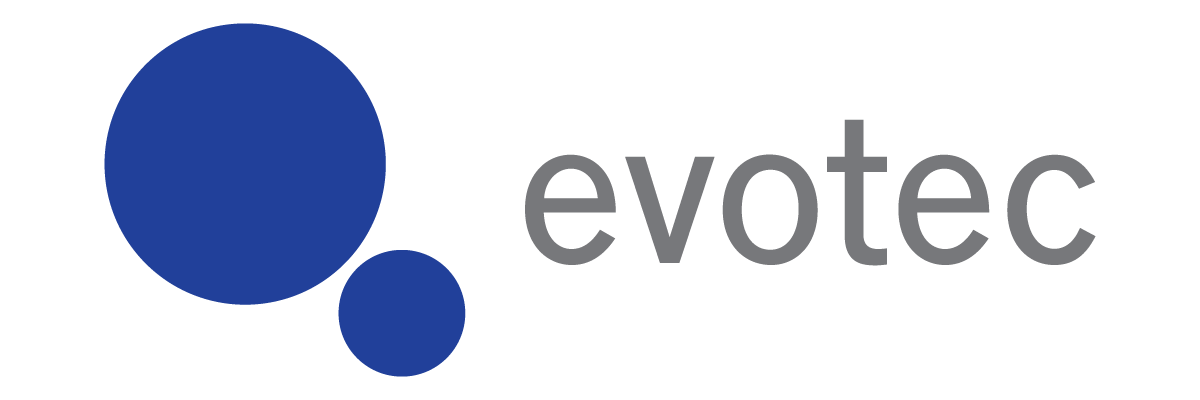
.png)

.png)
.png)
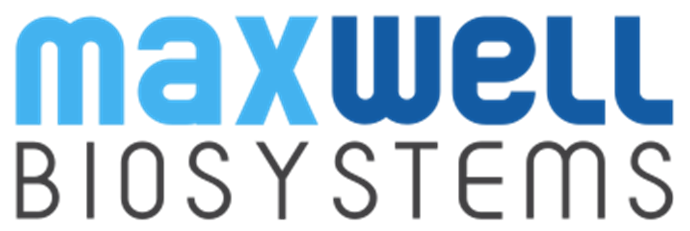
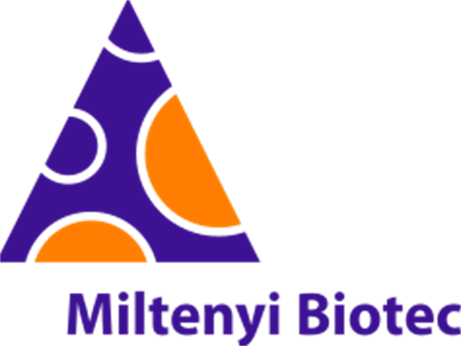

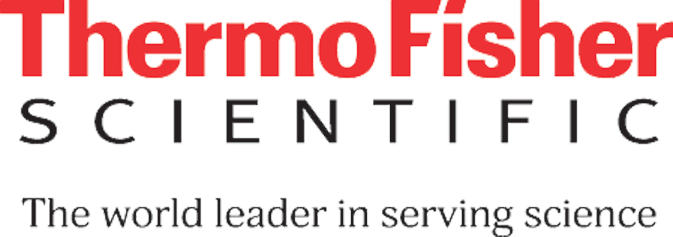
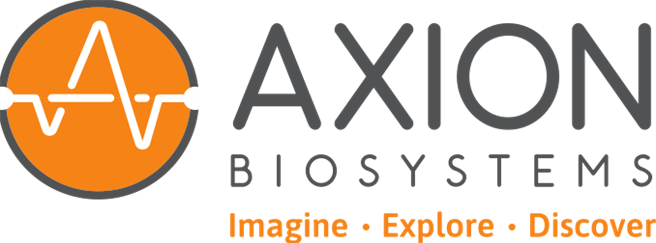

.png)
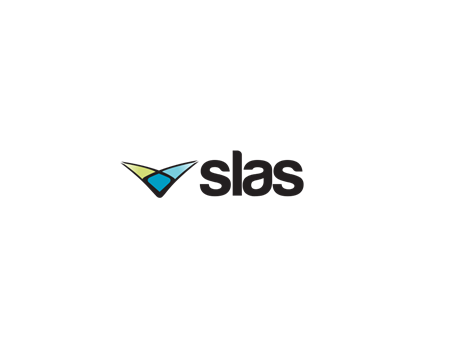
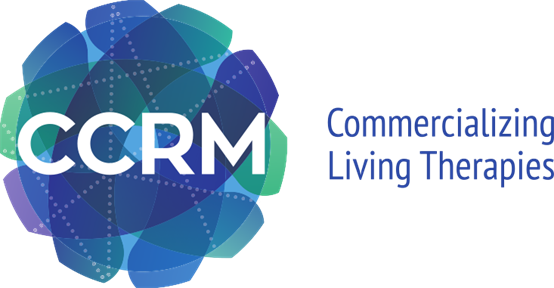


.png)


.png)
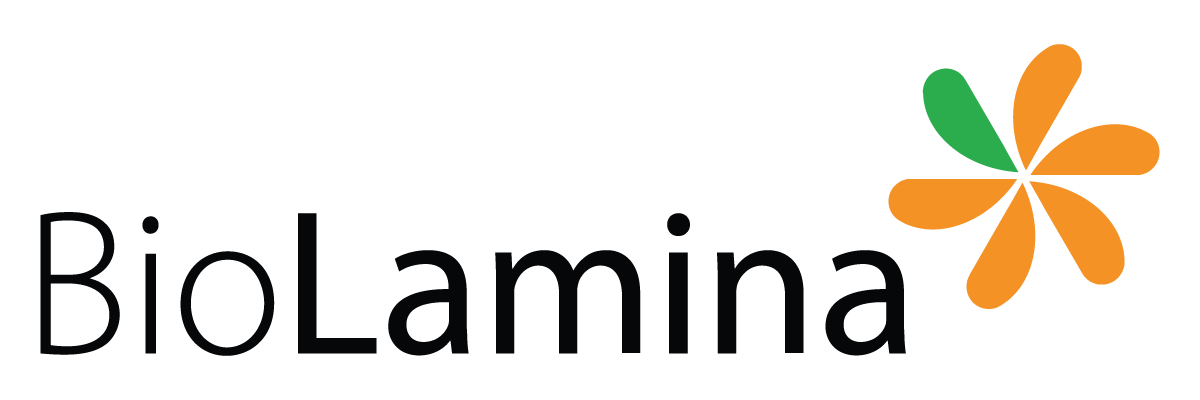
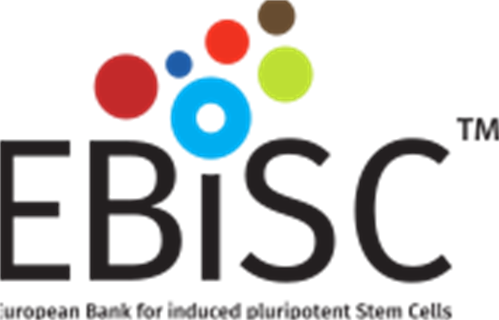
.png)
.png)
